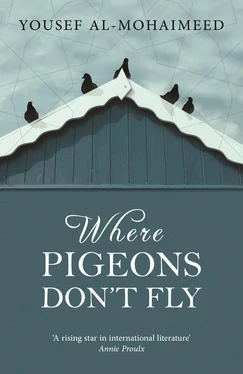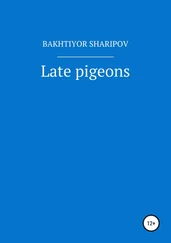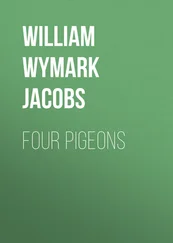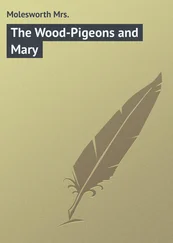‘What are tribes?’ Fahd asked.
His father answered hesitantly. ‘Tribes are people who lived together in groups, in Riyadh, Qaseem and Ha’il and so on. Then King Abdul Aziz came along …’ He suddenly fell silent, without adding, ‘…and occupied them.’
As they drove past the arcades, Fahd shouted, ‘I wish I were a king!’ He stretched out his hand in a military salute. ‘I’d tell them, “Knock the schools down.”’
Suleiman burst out laughing, then Fahd asked, ‘Dad? If you were king, what would you ask for?’
Suleiman was quiet for a bit. ‘Maybe I’d resign!’ he said.
‘How do you mean?’
‘I mean I’d say that I don’t want to be king.’
‘But why, Dad? You could ask for any toy you wanted.’
There was nothing more beautiful than those distant childhood moments. The only thing that could wreck their happiness was the presence of Soha, who sometimes tried to curb the generosity and child-like lunacy Suleiman displayed around his son, claiming that he was spoiling him and making him unfit for polite company. Even after Suleiman was lying in his grave she continued to reproach him for not raising his son properly, for being unable to refuse Fahd anything and ruining him.
A Sudanese artist called Kamal, whom his father once met in an art gallery on Thalatheen Street in Ulaya and whose pictures, with their searing African palette, had gripped Fahd’s gaze and mind, said of the boy as he stood pointing at the canvases: ‘The soul of a great artist sleeps in his depths and it must be awoken.’
Fahd’s father gave full credence to this myth — or insane lie — and bought him sketchbooks, watercolours and oil paints while his mother, irritable and seething, muttered that it would distract him from his studies not to mention that the fumes from the oil paint gave Lulua asthma attacks. How Fahd missed him.
Possibly in exchange for penetrating and pleasuring her last thing at night, Fahd’s uncle chivvied his mother into ambushing her son and nagging him to put a stop to this outrage with oil paints that his late father had involved him in. But was it his father who got him involved, or had Suleiman himself been drawn in by the chance remark of a random Sudanese artist?
Stretched out on his bed, Fahd pondered: How can I become an artist, Father, now that you’ve betrayed me and left me all alone? How is it, my dear Kamal, that you managed to embroil both me and my father in your prophecy? If only you knew how my pores open and the hairs in my nostrils quiver when I smell the oils; how dizzying it is, how fatal. How worked up I get at the brilliance of the artists I love; how I flow into the tumult of their colours. Do you even realise, painting away so creative and conceited, that I have had to rip the sheet from my sketchpad into pieces no bigger than a postage stamp so that my mother does not find them and lose her temper as she warns of my uncle’s rage? I draw trees or birds on those small shreds. I love birds when they’re circling in the heavens with rare delight, but I hate them too. I fear them approaching me; I’m scared to touch them. I really hate their feathers: I gag when I see an abandoned feather floating on the water’s surface. I can feel them moving over my tongue, the scratchy tip creeping to the back of my throat and I choke on it, like it was a clinging hair, so much so that sometimes I almost throw up.
— 16 —
THE AFTERNOON OF THE following day Fahd told his mother that he would be going to the stadium with Saeed. She tried persuading him to watch the match on television, then started in with her old lament that he would never do well at his studies and wouldn’t get the marks he needed to go to study a respectable subject.
‘Look at Yasser studying medicine. He’s going to be a doctor one day.’
He hurried down the front steps cursing Yasser and Abu Yasser as her voice came from the living room: ‘Don’t be late.’
Wearing his thaub and his team’s cap, Fahd walked until he came to Tareeqati Café. When he turned off Urouba Road he didn’t see Saeed’s Honda and he went into the café and started leafing through a copy of Riyadh . He read the provocations and challenges exchanged by the two coaches and club presidents and a few of the statements by former players. His mobile blared out Fairouz’s Remember the Last Time I Saw You? It was Saeed to say he was on his way, and minutes later Fahd saw the car through the café window. He went out and got in.
They were very late and the stadium was full of spectators. They went in but could only find space in the South End next to the Hilal supporters. As they climbed the terraces the loudspeakers were playing the national anthem:
He who walks barefoot over coals is worthy of you,
And he who waters your seed with sweat, tears and blood is worthy of you …
‘… is worthy of you,’ echoed the swaying crowd, entranced, while Saeed galloped up the steps gleefully and audibly singing, ‘He who waters your soil with the filth of murder and blood is worthy of you …’
Once they had passed the soldiers at the top of the steps and were sitting down, panting and trying to catch their breath, Fahd gave him a thump. ‘You’re crazy. The place is swarming with soldiers and cops.’
‘Men, let nothing you dismay,’ said Saeed, then joyfully held his arms aloft and shouted, ‘Smile! We’re in the pearl of stadiums.’
‘Your father occupied the Grand Mosque and it looks like you’re about to take over the stadium,’ Fahd whispered in his ear.
Down below the soldiers were drawn up in ranks and the band members were sitting in an area by the back of the goal. The bandleader looked around at his men and gave instructions in readiness for playing the national anthem as the king entered the stadium at half-time.
Opposite the rear entrance to Hammadi Hospital lived Muhannad, Fahd’s friend from middle school. One evening, as they played on the Playstation, Muhannad had suggested that Fahd come to the stadium the next day to watch a match along with him and his elder brother. He asked Suleiman’s permission, who reluctantly gave it, though he wavered over whether to go with him or not. At the last minute he backed down and gave Fahd one hundred riyals so he wouldn’t have to rely on anyone else.
‘Watch out for yourself, and don’t get separated from Muhannad.’
Half an hour before kick-off the three of them spotted a crowd of supporters rushing to the edge of the terraces overhanging the tunnel entrance to lean their heads out and watch the players stride out on to the pitch of Malaz Stadium. Muhannad’s older brother, Mansour, suggested they go and see the players up close and in the flesh and the two younger boys were delighted and noisily sprinted off. The crush of people was frightening, everyone striving to wriggle through to the edge of the terrace and hang on to the low cement barricade in order to get a view. Mansour was behind them, guiding and pushing them forward, and they almost suffocated from the lack of air.
As al-Daie and al-Jaber emerged before the screams of the fans, Fahd felt Mansour press up painfully behind him. When he continued to press forward, Fahd tried to step out of the way and shifted a little to the left only for another man to barge into him. He looked round in alarm to find a man with his head swathed in a shimagh showing nothing but his eyes, and he swivelled about and dragged Muhannad away, saying, ‘Let’s go.’
The episode brought back memories of the incident with the feather from his childhood and he felt very guilty for going to the stadium with someone he didn’t know well and for not taking his father with him. It also reminded him of the time he and his Iraqi friend, Muwaffaq, had climbed on to the tables in the passage that ran past the classrooms during break time, to watch a football match through the curtains of the second floor windows. Muwaffaq was getting very close to him; Fahd understood what he wanted, backed up a little to make room. Muwaffaq slipped between Fahd and the wall like a tame ginger tabby. Fahd pressed against him from behind and the two of them laughed until they were surprised by Nasser, the class monitor, who climbed up on the table to harrass them, putting his hand on Muwaffaq’s shoulder and pulling the boy towards him, saying, ‘You can see better from over here.’
Читать дальше












